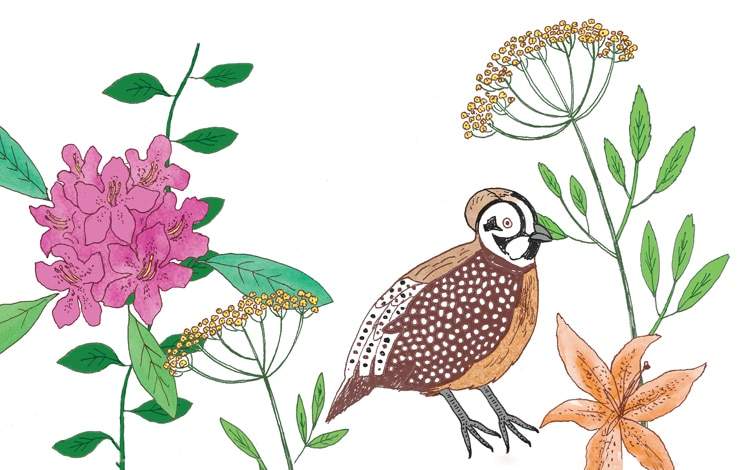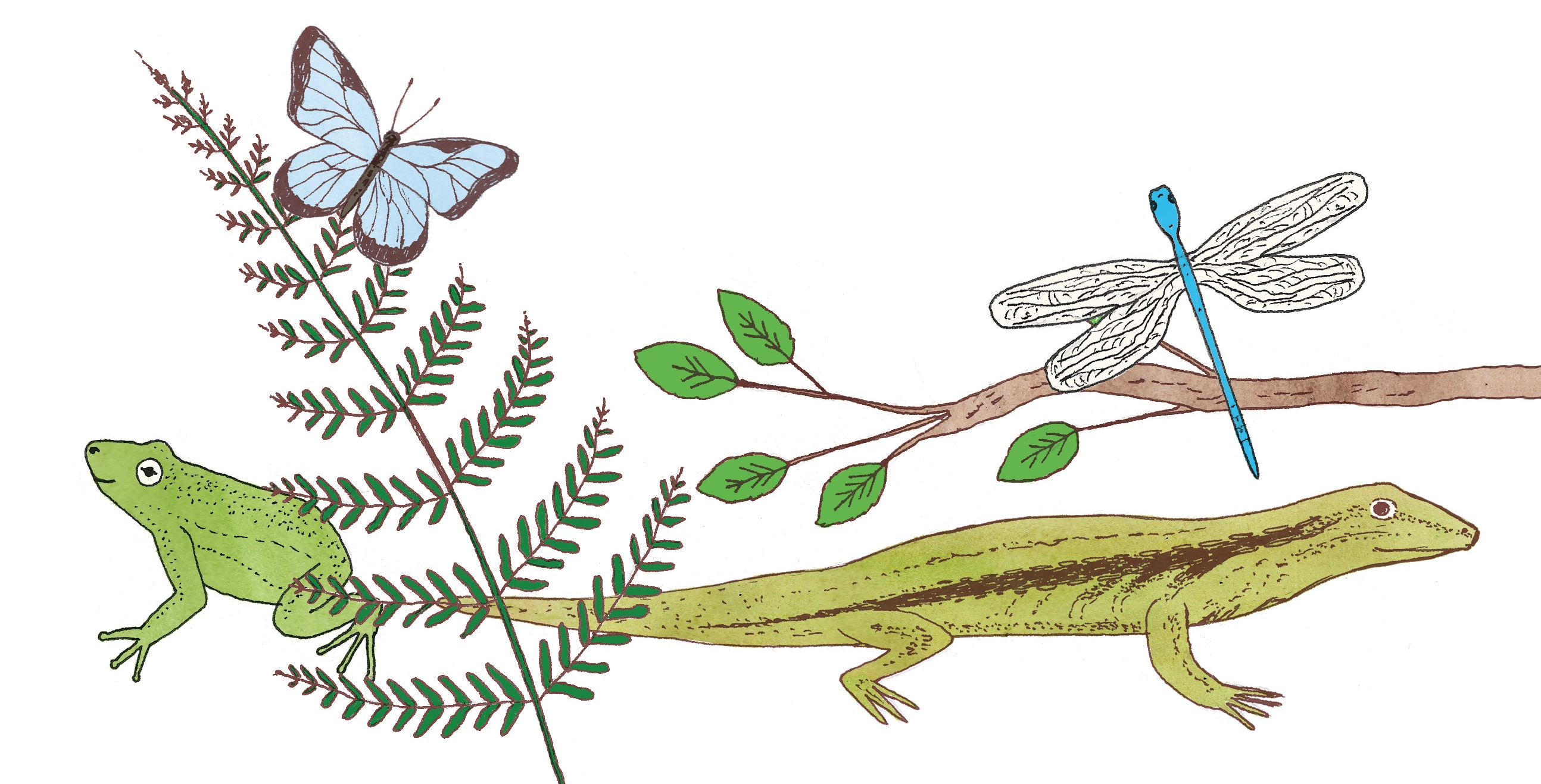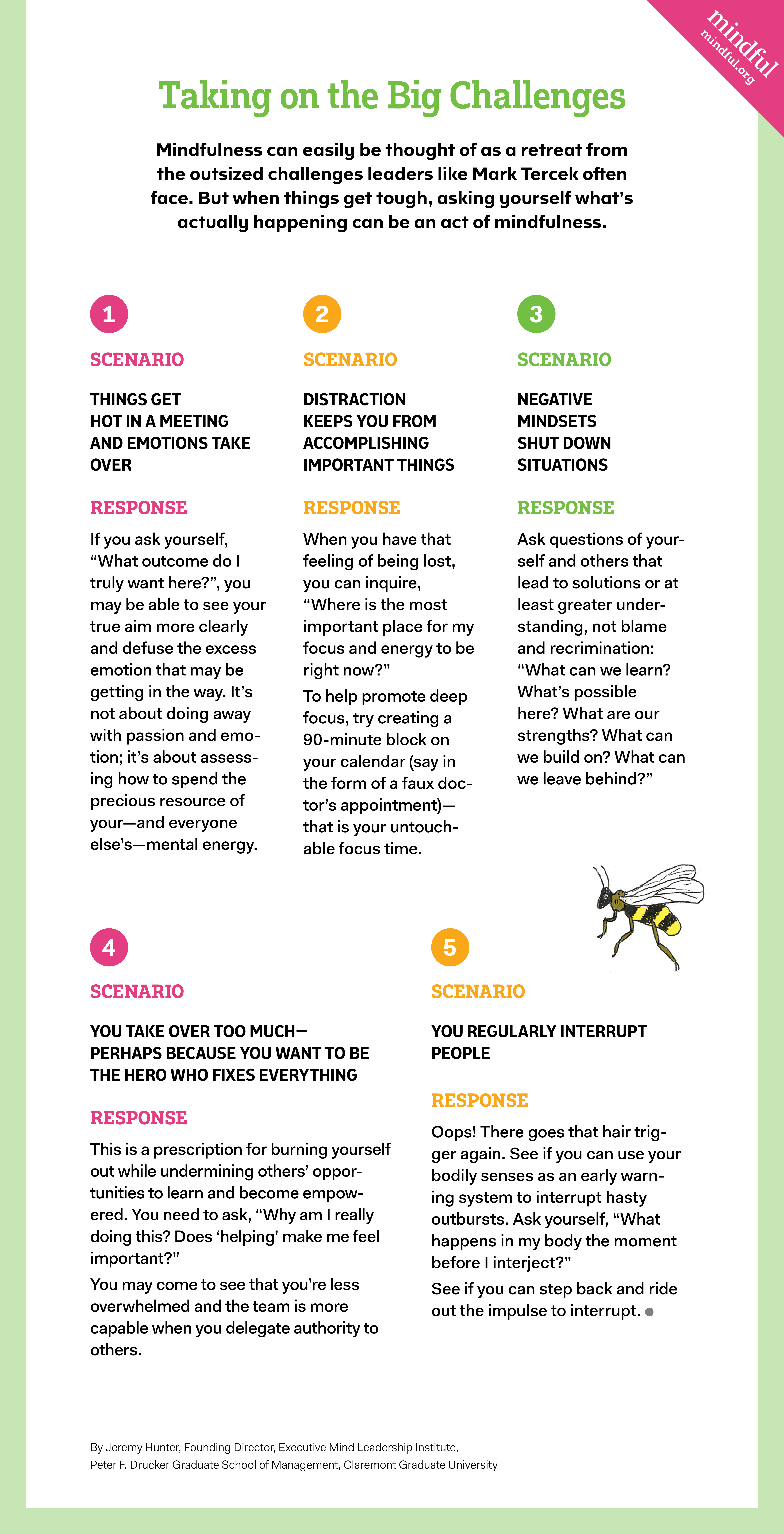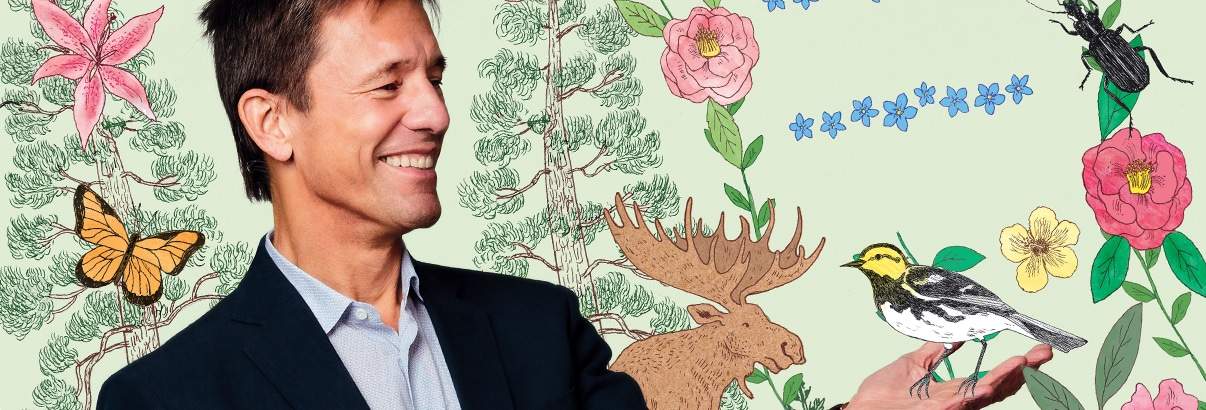The Nature Conservancy, the largest nonprofit environmental organization in the world, works to save the planet in an unusual way: not by opposing the big business interests often seen as villains but by partnering with them and other sectors of society, encouraging corporate leaders, policy makers, and citizens to understand the essential value of nature and to protect it by making wiser business decisions. Thanks to its hallmark inclusive, collaborative approach, The Nature Conservancy has raised billions of dollars over its 65-year history and enlisted many unlikely advocates to the cause of environmentalism. In 2008, the nonprofit appointed a new President and CEO who might have seemed an unlikely choice himself: Goldman Sachs investment banker Mark Tercek. But Tercek quickly won the respect of environmentalists and vastly expanded the work of The Nature Conservancy around the world. He credits not only his great colleagues, business acumen, and profound love of nature but also the practice of mindfulness meditation. He spoke with author Peter Jaret about the challenges of his job and the ways mindfulness has helped him.
When did the practice of meditation start clicking for you?
When I became CEO of The Nature Conservancy in mid-2008, it was a challenging time economically—the country was hit hard by the financial crisis. Nonprofits like TNC were having a very tough time raising money. And it was a challenging time for me personally. I had taken the helm of an organization with 4,000 staff members, offices in all 50 states and 70 other countries. There was a lot I knew about the work of environmentalism, but there was a lot I didn’t know. I was doing a pretty good job, I think. But I was also aware that in some ways I wasn’t doing as well as I wanted to on the human relations front. I wasn’t connecting as well as I wanted to with the people who worked for TNC and the many partners we work with. Fortunately, a friend of mine, Marshall Goldsmith, who is a prominent executive leadership coach, offered to work with me pro bono. To get a sense of our organization and the job I was doing, he spoke with the senior team and members of our board of directors. He came back to me and said that in many ways I was doing a good job, but in other ways I was being a jerk. I wasn’t listening. I was being too demanding. I was sweating all the details. I was being too negative. So Marshall and I came up with a game plan to improve in those specific areas. I made some progress, but changing my habits was tougher than I thought. As it happens, I’ve always enjoyed reading about the practice of meditation, and I was doing so again. And I thought, OK, I should give it a try. Maybe it will help.

What was the experience like?
As soon as I began to meditate, I found I was making more progress incorporating the better practices that Marshall and I had set as goals at work. It was easier for me to listen to the people I worked with, to be positive and not sweat the small details. I want to emphasize that mine remains really a beginner’s practice of meditation. It’s still a beginner’s practice in many ways. But even so, I began to experience benefits. My interpersonal relations at work and at home felt better. One of my unfortunate habits, especially when I’m very busy, is to not listen well, to cut people off, to think that I have the answer to everything. No one likes that. It creates stress for everyone involved, including me. It meant I wasn’t getting the best from my colleagues and I was being unkind. On an intellectual basis, I understood that if I listened more and better understood other people’s point of view, everyone would benefit. But knowing that and doing it were two very different things.
So how did meditation help?
Well, it quiets my mind, calms me down, and makes it much easier for me to listen and to understand others better. It helps me slow down, not jump to conclusions, to do my work in a less stressful way. That’s one of the outcomes of a calmer, more mindful approach to work. And at home, when I remember to meditate, it helps me appreciate my family more and allows me to get along with them better. Once I began to notice real benefits, I got more earnest about my meditation practice.
What do you mean by more earnest?
By sheer good fortune, a friend of mine in Washington, DC, not far from where TNC has its headquarters, organized a meditation study group. It’s an all-male businessman’s group, run by Jonathan Foust, who is a great meditation teacher. He’s a leading teacher at the Insight Meditation Community of Washington and a founder of the Meditation Teacher Training Institute, also in Washington. I also began to participate in many of the DC-based mindfulness meditation gatherings. So several things came together at once in my life to help me to develop meditation and really pursue it.
How do you find time in your busy schedule to meditate?
I try to keep it simple. I’m OK with doing meditation sessions of just five or 10 minutes, if that’s all the time I have, to sit very quietly and still, and focus on my breathing. I sometimes do a loving-kindness practice, which I find very helpful for me. I generally don’t make it much more complicated than that. I also sometimes use apps like Buddhify or Headspace, which can be very useful, I think. I often listen to the podcasts of Jonathan Foust as well as his wife Tara Brach. Something else I find enormously helpful in my practice is reading books about meditation. I’m a big fan of Norman Fischer, the author of my favorite book, Training in Compassion. I also like the work of Chade-Meng Tan, the Google executive who started Google’s Search Inside Yourself program and who teaches and writes about mindfulness. And I listen to podcasts like Dan Harris’ “10% Happier.”
Does meditation inform your work as an environmentalist?
In many ways, it’s really at the heart of our vision about how to work for the good of the environment. Our philosophy at TNC is to find common ground with diverse parties in an effort to make environmental progress. We believe that finding solutions for protecting the environment is a win–win proposition. Businesses can benefit; people around the world can benefit; governments and communities can benefit. So we work with a lot of groups that might not at first seem to have an interest in environmentalism. Our goal is to help these diverse interests understand that if we work together, we can make important progress that will benefit everyone. For me, as CEO, when meeting with outside groups, mindfulness meditation really helps. To the extent that I practice mindfulness and behave that way, I do a better job fulfilling my duties as CEO, consistent with the approach we champion. I genuinely believe there is a great untapped opportunity for environmental progress that can flow from a more mindful approach to working with diverse groups.
Can you give me an example?
Sure. In our view, the biggest environmental challenge by far is climate change. It’s also the most difficult to address. It requires radical changes in how humankind sources its energy. Those changes are difficult, and they have a cost. But the costs and consequences of not acting are even greater. We want to do everything we can as an organization to mobilize humankind so that we can get on with addressing this biggest environmental challenge of all. Unfortunately, in the US right now, one of the biggest challenges is the divisive and highly partisan climate of Capitol Hill on climate change. The US doesn’t have the kind of comprehensive, pragmatic, common-sense effective energy and climate policy that we need. Why not? One reason is the big divide between Republicans and Democrats, and between red and blue states. TNC has chapters in every state, red states and blue states alike. Each has a board of trustees representing diverse constituencies: Republican, Democrat, urban, rural. What brings them together is the simple fact that they care about nature and respect climate science. A few years ago we asked these groups to begin to engage on the subject of climate policy. And at first, there was some unease about this, especially in states that faced strong political headwinds. Some of these are states where coal is an important part of the economy, for example. And we understand that we have to get past such challenges. But as an organization we believe—even if it’s very difficult—that we really need to address global climate change. And this is where the practice of mindfulness comes in for me. We encourage our team to engage with people who might strongly disagree with us in a respectful way, an inclusive way, without vilifying anyone, looking for common ground. We work hard to understand where other people are coming from. I personally think the philosophy and approach of mindfulness helps inform our work. If I speak just for myself, I can say that from a mindfulness meditation practice, I’m better able to do the work of TNC. You have to walk the talk. You have to practice what you preach. And being a mindfulness practitioner helps me do that.
How does mindfulness affect the way you experience nature?
Nature and mindfulness inform each other in profound ways. They are both aligned. Nature can provide the same kind of calming, quieting effect, which is enormously therapeutic and joyous for me. And now, because I’ve learned a little bit about meditation, when I visit beautiful places to experience nature, I try to bring a full sense of deep appreciation and gratitude. To the extent that mindfulness helps me appreciate nature at an even deeper level, it deepens my commitment to protecting these precious resources.
Nature and mindfulness inform each other in profound ways. They are both aligned. Nature can provide the same kind of calming, quieting effect, which is enormously therapeutic and joyous for me.
Before joining TNC, you were a Wall Street investment banker for 25 years. That’s a dramatic career change. How did that come about?
Many have criticized Wall Street since the 2008 financial crisis, and to some degree that’s fair. But in my career, I worked with good people trying to do good things. I started in financings and mergers. Over time I began managing, which I really enjoyed. I believed—and still believe—that business can be a force for good on various challenges our society faces.
On the personal side, meanwhile, my wife, Amy, and I wanted our kids to experience nature. While we both have urban backgrounds, we decided to take our kids on trips to experience and appreciate nature fully. Of course, we were all hearing and reading more and more about threats to nature, including climate change. I guess I’d always thought that I would leave Wall Street someday for something else. In 2005, after 21 years with Goldman Sachs, I went to my boss, Hank Paulsen, and said I had this idea to leave Goldman Sachs and become an environmental leader. Hank, who is a very direct person and a committed environmentalist—and who went on to serve as US Secretary of the Treasury—said he had a better idea.
I believed—and still believe—that business can be a force for good on various challenges our society faces.
He asked me to stay at Goldman Sachs and build an environmental effort for the firm. So I developed the Goldman Sachs Environmental Markets Group and spent several years running it. I’m proud of what we did, identifying opportunities that were good for the environment but also good for our clients’ business. And I learned a lot in this role. When the TNC job became available, I applied, and in 2008 I became the new CEO.
What was that transition like?
Of course, as I said, there was a lot that I didn’t know about environmentalism and about TNC. But there were plenty of people here who knew all of that and could guide me. For my part, I brought a strong knowledge of business that proved to be very helpful. In fact, I hope more people will consider the kind of career shift I made. There are so many opportunities to go into different fields, bringing what you’ve learned, and helping different parts of society understand one another. That’s important, especially these days, when the country is so polarized. We need to find common ground and ways to move forward together. Sometimes when I talk about that, people think I’m being naïve. But I don’t think so. That’s where TNC’s history is so inspiring to me. Over the organization’s 65-year history, we’ve been so successful because we’re always looking for common ground with unlikely allies. It’s in our DNA. We start with areas we have in common and take it from there. We set out to listen, to understand other people’s points of view, to have more empathy. That’s a lot of what the approach of mindfulness practice is all about. It all comes together for me in a way I find super positive and rewarding.
What do your business colleagues think about you meditating?
Business people still have some discomfort talking about it. But that’s changing very fast. A lot of people are hearing more about the practical benefits of meditation. Actually, I sometimes wonder if those practical benefits aren’t being emphasized a little too much, at the expense of what I think of as the larger benefits to society. But then again, I recognize that my own interest in meditation was self-centered at first. I wanted to be a better manager. But now I’m learning that the primary benefit of meditation is helping me be a kinder and more compassionate person. I care a little less about me and more about others. That’s really what excites me now. After I had been at TNC a little while, some colleagues confided in me that it was hard for people at the organization to feel comfortable with me. They suggested that I share some of the things that were most important for me. So I opened up and shared the role that meditation plays for me. I’m more open about who I am—which I think is good—and I think I’m becoming a kinder person (even though I still have lots of room for improvement).
I wanted to be a better manager. But now I’m learning that the primary benefit of meditation is helping me be a kinder and more compassionate person
What was the reaction?
Of course, as you’d expect, some colleagues have a lot of interest in learning more about mindfulness practices. And I think the fact that I shared this important part of my life helped people get to know me and understand who I am. We recently offered our first mindfulness course at our headquarters in Virginia, and it was oversubscribed. People really liked it. Afterward, on their own, some colleagues created a meditation room at the office. Now we’re rolling out more course offerings.
Are you comfortable with being a role model for mindfulness?
I’m a humble beginner. I’m really just getting started. The good news is that even a beginner like me can get a tremendous amount out of mindfulness meditation. It has added a dimension to my life that brings me a lot of satisfaction and joy. If you were to say to my colleagues at work, or my wife and kids, “Mark says meditation practice has made him a better listener. He says it has made him more positive. He says he doesn’t sweat the little things as much. Is that true?” I suspect they would say something like, “Well, it’s true he has made some progress.” But they would likely also add, “But he has a long way to go.”

Good for the Planet
The Nature Conservancy is working to create a future in which people and nature thrive together. That’s not easy these days, with booming worldwide populations, growing pressure on natural resources and habitats, and partisan political wrangling. But as president and CEO, Tercek remains optimistic about the future. He points to four areas in which the nonprofit group is helping to solve some of the biggest challenges that lie ahead.
Addressing the climate
TNC is demonstrating nature’s potential as a cost-effective climate solution, helping people and nature adapt to the effects of a changing climate, and driving clean energy development that sustains communities while minimizing impacts on nature. According to Tercek, nature-based solutions for sequestering carbon, such as forest conservation and reforestation, investing in soil health, and restoring coastal ecosystems, could contribute about one-third of the emissions reductions needed by 2030.
Building healthy green cities
With a belief that nature can help create resilient and livable cities, TNC is bringing nature into cities to ensure clean and reliable water supplies, reduce air pollution, enhance infrastructure, and improve people’s health and well-being—from urban forests that provide shade and cooling to rooftop gardens that capture rain and grow food.
Feeding the world sustainably
TNC works with farmers, ranchers, and fishermen to increase food supplies while reducing environmental impacts. Strategies include improving the health of soil, advancing harvesting and ranching methods that protect nature and store more carbon, and developing and deploying technologies for sustainable fishery management.
Protecting land and water
Through innovative financial solutions and partnerships with indigenous people and local communities, TNC is finding new ways to safeguard the lands, waters, and oceans that serve as refuges for wildlife and biodiversity around the world. In Florida, for example, where climate change and rising sea levels threaten to put millions at risk of flooding, TNC is working with ecologists, economists, engineers, and local officials to explore the use of natural systems such as reefs, mangroves, and wetlands as a buffer against storm surges.

Taking on the Big Challenges
Mindfulness can easily be thought of as a retreat from the outsized challenges leaders like mark Tercek often face. But when things get tough, asking yourself what’s actually happening can be an act of mindfulness.
1) Scenario: Things get hot in a meeting and emotions take over
Response: If you ask yourself, “What outcome do I truly want here?” you may be able to see your true aim more clearly and defuse the excess emotion that may be getting in the way. It’s not about doing away with passion and emotion; it’s about assessing how to spend the precious resource of your—and everyone else’s—mental energy.
2) Scenario: Distraction keeps you from accomplishing important things
Response: When you have that feeling of being lost, you can inquire, “Where is the most important place for my focus and energy to be right now?” To help promote deep focus, try creating a 90-minute block on your calendar (say in the form of a faux doctor’s appointment)—that is your untouchable focus time.
3) Scenario: Negative mindsets shut down situations
Response: Ask questions of yourself and others that lead to solutions or at least greater understanding, not blame and recrimination: “What can we learn? What’s possible here? What are our strengths? What can we build on? What can we leave behind?”
4) Scenario: You take over too much—perhaps because you want to be the hero who fixes everything
Response: This is a prescription for burning yourself out while undermining others’ opportunities to learn and become empowered. You need to ask, “Why am I really doing this? Does ‘helping’ make me feel important?”
You may come to see that you’re less overwhelmed and the team is more capable when you delegate authority to others.
5) Scenario: You regularly interrupt people
Response: Oops! There goes that hair trigger again. See if you can use your bodily senses as an early warning system to interrupt hasty outbursts. Ask yourself, “What happens in my body the moment before I interject?”
See if you can step back and ride out the impulse to interrupt.
By Jeremy Hunter, Founding Director, Executive Mind Leadership Institute, Peter F. Drucker Graduate School of Management, Claremont Graduate University
This article appeared in the December 2017 issue of Mindful magazine.
Subscribe today.
https://www.mindful.org/how-nature-boosts-kindness-happiness-and-creativity/
https://www.mindful.org/eat-well-heal-the-earth/



